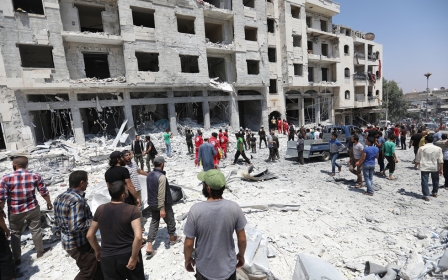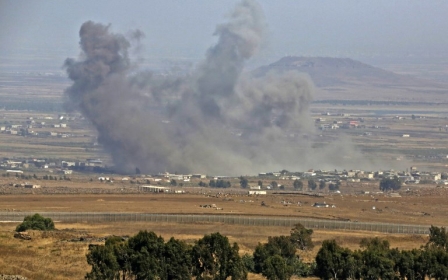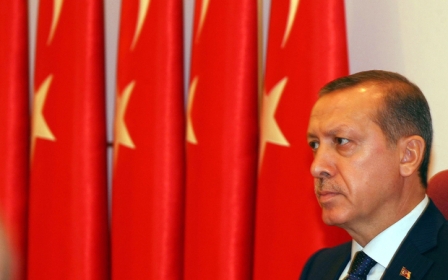Russia's Lavrov suggests offensive on Syria's Idlib close
ANKARA - Russian Foreign Minister Sergey Lavrov said on Tuesday that the Syrian army has a right to defend itself against attacks in Idlib, and Moscow will support those operations, pouring cold water on suggestions a major offensive could be avoided.
His comments came during a joint news conference in Ankara with Turkish Foreign Minister Mevlut Cavusoglu in which Turkey and Russia's visions for the last remaining rebel-held province in Syria appeared in stark contrast.
The Syrian army has the right to defend itself against those attacks, and we have to support their operations
- Russian Foreign Minister Sergey Lavrov
Syrian President Bashar al-Assad, who is backed by Moscow, has said his forces will recapture the region where Turkey has set up a dozen military observation posts.
Asked whether Russia would support a Syrian government operation in Idlib, Lavrov said that all other de-escalation zones in the country had been declared under the condition that the ceasefires wouldn't include terror groups.
"Armed groups should split from terror groups. We know Jabhat al-Nusra [the al-Qaeda affiliate] is active [in Idlib] with thousands of militants," he said.
"Yes, Turkey's monitoring posts helped to ease the tension, but recently they are attacking the Syrian army and also Russia's Hmeimim military air base. The Syrian army has the right to defend itself against those attacks, and we have to support their operations."
Meanwhile, Cavusoglu said he hoped to find a solution over Idlib and said it was "obvious" what needed to be done.
"Our intelligence agencies [and] armies should cooperate to locate and defuse the terror groups in Idlib," he said.
“To bomb all the city only because of terror groups would lead to a massacre and large-scale crisis," he added.
"We should separate the moderate opposition from the terrorists. Since all those groups and also the civilians are very unhappy with these terrorists, we should all be cooperating.”
Sanctions and visas
Over the past week, the US has lobbied for fresh sanctions against both Turkey and Russia, with Russian President Vladimir Putin calling Erdogan soon after the new US measures against Ankara.
A day after the call, Erdogan said during a speech in the Black Sea coastal town of Unye: “Before it is too late, Washington must give up the misguided notion that our relationship can be asymmetrical and come to terms with the fact that Turkey has alternatives."
“Failure to reverse this trend of unilateralism and disrespect will require us to start looking for new friends and allies,” he said.
During the press conference, Lavrov said the sanctions against Ankara and Moscow are illegitimate and merely a way for the US to obtain an unfair competitive advantage in global trade.
"I'm confident that the grave abuse of the role of the US dollar as a global reserve currency will result over time in the weakening and demise of its role," said Lavrov.
"The use of national currencies for mutual trade has for several years been one of the tasks that the presidents of Russia and Turkey had set," said Lavrov.
One issue that remained off the agenda during the press conference was the question of whether Russia will drop its requirement for Turks to apply for visas to enter the country.
After a Russian jet was shot down by Turkish jets over the country's border with Syria in November 2015, Russia put an end to visa-free travel for Turkish citizens.
Relations between the two countries were normalised in June 2016, but the visa requirement has remained in place.
On Sunday, Russia's Foreign Ministry said it was considering lifting the requirement for certain categories of Turkish citizens, Anadolu Agency reported.
Ahead of journalists' questions, Cavusoglu said: "The visa issue is important to us. We are happy about the fact that Russian citizens can travel to Turkey without a visa.
"Our citizens should be able to travel to Russia, as well, without visas, as it was before the crisis. We are working on it, hopefully we will solve it.“
New MEE newsletter: Jerusalem Dispatch
Sign up to get the latest insights and analysis on Israel-Palestine, alongside Turkey Unpacked and other MEE newsletters
Middle East Eye delivers independent and unrivalled coverage and analysis of the Middle East, North Africa and beyond. To learn more about republishing this content and the associated fees, please fill out this form. More about MEE can be found here.




